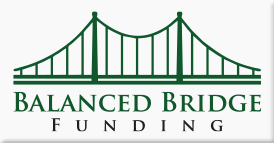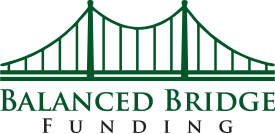Loans on Lawsuit Settlements – For Plaintiffs and Attorneys
Loans on Lawsuit Settlements are for plaintiffs or plaintiff attorneys who are waiting on payment from a settlement and need money now. If you have won a lawsuit award or settlement, you can receive a loan on your lawsuit settlement.
It can take years after a case settles (or concludes) before a plaintiff or law firm receives a check. It isn’t uncommon for plaintiffs in civil cases to never receive any money at all, even though a court ordered the other party to pay.
While you are waiting for your money, you still have expenses to pay, and a future to finance. Loans on Lawsuit Settlements is a way to receive some money now to keep things going (and growing).
Balanced Bridge Funding specializes in Loans on Lawsuit Settlements for all types of cases. Our approval process is simple, fast, and discreet.
Contact Us Today.
Why Work with Balanced Bridge Funding?
At Balanced Bridge Funding, we are professional, courteous, fast, and discreet. Our clients like to keep their financing activities private, and we respect their wishes. When you work with us, you work with a group of true professionals with many years of legal funding industry experience.
Balanced Bridge Funding is a real funding company. We are not a brokerage for someone else’s business. When you work with us, you work with the source of your funds, not a “middle man.” Going direct to the funding source can help contain costs, maintain privacy, and ensure you are working with the people who make the decisions about your settlement loan.
What is a Loan on Settlement?
Loans on Lawsuit Settlements are a financial vehicle law firms, attorneys, and individual plaintiffs can use to receive advances on payments from a settlement award or judgement.
Law Firms use Loans on Lawsuit Settlements to finance operations, manage cash flow, and finance future growth for the firm.
Individuals use Loans on Lawsuit Settlements to pay for services they need, pay bills, pay off debt, or any number of personal reasons.
Who are Loans on Lawsuit Settlements For?
Loans on Lawsuit Settlements are utilized by individuals and law firms of all sizes.
Large law firms use Loans on Lawsuit Settlements to leverage their continued growth. Smaller law firms use Loans on Lawsuit Settlements to finance operations, take on new cases, hire better experts, and to help them be competitive.
Individual plaintiffs use the money to pay bills, medical expenses from injuries related to the case, or to pay off debt, or to take a much needed rest after a major case finally concludes.
One of the great things about Loans on Lawsuit Settlements is that the money is secured by the settlement award itself, so you don’t have to explain what you intend to use the money for (unlike a bank loan).
Loans on Settlements – A Growth Strategy for Law Firms
Business owners who think small, tend to stay small. Large businesses never hesitate to use “other people’s money” to fund their future growth. They borrow, sell debt, sell shares, and take positions on commodity exchanges to hedge against price fluctuations. They buy new companies just to leverage their assets for the growth of their existing businesses. Law firms should be no different.
Major lawsuits are expensive and can last years or even decades. During that time, the law firm does not receive any capital from the lawsuit. Even after the case is settled, it can take years before the money is actually paid out.
Loans on Lawsuit Settlements is a great way to leverage the work you’ve already done to fund future growth instead of putting growth on hold while you wait to be paid for efforts.
How Do Loans on Lawsuit Settlements Work?
Once you have reached a settlement or have received a judgement from a court case, the money you are owed is considered an asset. It is “property” that you own with a knowable value. Because it is an asset, all, or part of it can be sold to someone else just like any other property you own.
We (Balanced Bridge Funding) purchase a portion of the amount owed to you (at a discount). You get money now, and we take over ownership of the portion of the asset we purchased. One the case finally pays out, the administrator of the case pays us directly, and you receive the remainder of the money owed to you. That’s right – you don’t have to make payments while the case waits to be paid out. You don’t pay us back. Because we own the asset, we are paid directly from the lawsuit, not you.
But how does that work exactly?
It isn’t as complicated as it might sound. The basic premise is if you do the “waiting” then you will get all the money. If you hire a third party finance company to pay you now, and they do the waiting for you, then they get part of the money as payment for waiting.
You’ve probably heard of how the lottery system works as far as paying winners. The winner has two options:
Options 1: They receive their money stretched out over time (they wait for the money), in which case they get the full amount owed to them, but stretched over twenty years or so.
Option 2: If they don’t want to wait for the bulk of their money, they can take a “one lump sum payment” option. They receive one large payment right away, but it is only a fraction of the total amount of money they originally won.
The longer you are willing to wait, the more of your money you get to keep.
A lawsuit settlement loan operates in a similar manner in that if you don’t want to wait, you don’t have to. You can receive money now, but you will receive less than the total you are owed.
If you can wait to get paid from a settlement – you will eventually receive 100% of the money owed to you. But it can take years or even decades to get paid from a settlement or judgement.
But if you want or need money NOW – you can sell part of what you are going to receive from the settlement or award, and you get money NOW – but you don’t get all of it. We receive part of it as fee for giving you the money right away, and then we must wait to be repaid later by the settlement.
In finance terms this is called “a discount.”
I’m still not sure how that works.
Here is an example – But please note this is not real-world example of a lawsuit loan. This is ONLY to explain how a “discount” works so you can understand the language.
Let’s say a person is owed $100,000 for some reason, and they are pretty much guaranteed they will get the money, but not until three years from now. Who knows why – maybe they can’t get access to it until they turn thirty for some unknown reason.
But while they are waiting, something happens in this person’s life; let’s say they have an unexpected bill to pay, and they REALLY need money right now.
To get their money now, they agree to sell their ownership of the $100,000 (that won’t be paid out until three years from now) to a third party finance company (like Balanced Bridge Funding). The third party finance company knows that they won’t get paid for three years, but they know they will get back more than they loaned out.
Back to our example: The third party finance company decides that they need to make $15,000 in exchange for putting out their money now (to pay the individual) and waiting three years to get their money back.
If the two parties agree – then they draw up a contract, and the individual person would receive $85,000 right away ($100,000 – $15,000 = $85,000).
The third-party finance company who bought the contract will receive their $100,000 three years in the future (incidentally this is why this type of transaction is referred to as buying “futures”).
The third party finance company paid out $85,000 today, and three years later they receive $100,000. They profit $15,000. ($85,000 + $15,000 = $100,000).
This is how Loans on Lawsuit Settlements work. It is not at all like a loan you are used to, but this type of transaction has come to be “known as” settlement loan or loan on settlements in the legal industry so this is how we refer to it, even though it isn’t a loan like you are used to hearing about.
How Does Balanced Bridge Funding Get Paid?
If Balanced Bridge Funding purchases some portion of a settlement that is owed to you, you do not pay us back directly. We own the asset now because we bought it from you. When the settlement finally pays out, Balanced Bridge Funding is repaid what it is owed directly by the case administrator, lead counsel, or from the escrow account. Remember, we purchased this asset from you. It is our responsibility to collect what is owed to us from the settlement or award. Not you.
Are Loans on Lawsuit Settlements a Loan?
Loans on Lawsuit Settlements are not actually a loan. Loans on Settlements is properly called Settlement Funding. But settlement funding has become commonly called Loans on Lawsuit Settlements so we still use that language even though it isn’t really a loan.
The terms might seem semantical, but they do matter. Some states have passed legislation just to specify that Loans on Lawsuit Settlements do not in any way meet the criteria of a loan.
Example: In 2020, Utah passed HB 312 that specifically states Loans on Lawsuit Settlements does not meet the definition of a loan or credit. (source)
Unlike a loan, Loans on Lawsuit Settlements does not have monthly or interim payments to a lender. When your case finally pays out, your obligor pays Balanced Bridge Funding directly rather than you paying us.
What Type of Loans on Lawsuit Settlements Does Balanced Bridge Funding Finance?
We fund all types of settlements where there is a delay between time of settlement and actual payment. Here are just a few (not all) types of settlements we will fund:
- Class Actions
- SSDI
- Veterans Disability Claims
- Sexual Assault
- Infant Injuries
- Product Liability
- Personal Injury
- Truck Accidents
- Mass Torts
- Multi-District Litigation
- Employment Discrimination
- Wrongful Death
- Slip & Fall
- Medical Malpractice
- And More!
Chances are, if you are going to receive a settlement or award, you can receive Loans on Lawsuit Settlements from Balanced Bridge Funding.
Are Loans on Lawsuit Settlements Regulated?
As of 2022, there is no federal regulation for third party litigation funding. Some states have begun considering regulation, and it is reasonable to expect regulation in the future and for those regulations to differ state to state.
The legal industry is policing themselves (as they tend to do) regarding legal funding. The American Bar Association (in 2020) issued a report of “best practices” for third party litigation funding.
The Legal Funding industry has made a great deal of progress policing itself. There are at least two associations now in the Legal Funding Industry. The Alliance for Responsible Consumer Legal Funding, and the American Legal Finance Association (ALFA).
Does Balanced Bridge Funding Belong to an Association?
Yes, Balanced Bridge is a member of ARC – The Alliance for Responsible Consumer Legal Funding.
Talk to Us Today About Loans on Lawsuit Settlements
Call: 267-457-4540 to speak to one of our legal funding experts.

